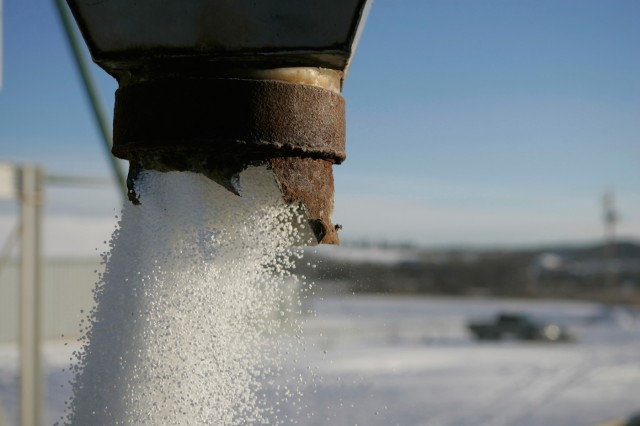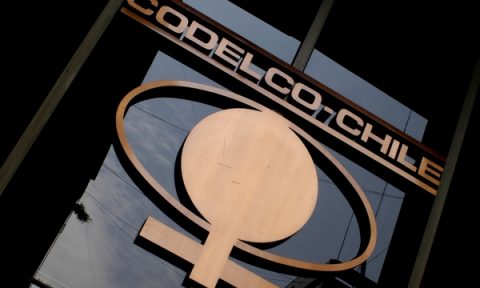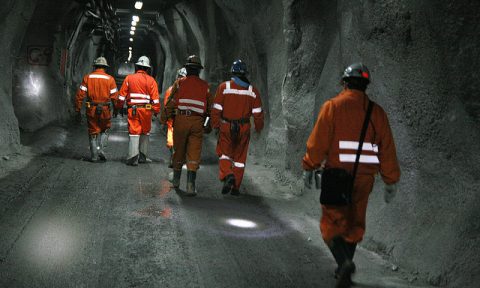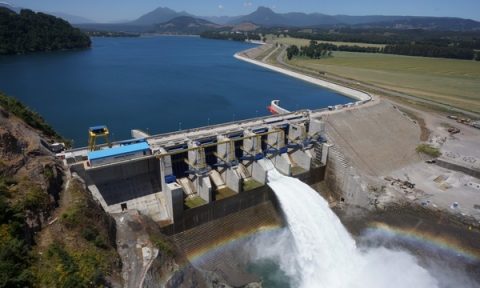The price war is anticipated by the end Potassium poster
So far the world’s potassium producers sold as higher prices set by major producers. These were grouped in a poster composed by Uralkali and Belaruskali, and another American. The breakdown of the first one changed the way of analyzing the market
Until yesterday, many investors had never heard Potassium poster called Belarus Potash Company (BPC), composed by Uralkali (Russia) and Belaruskali (Belarus) Companies. In fact, his sudden disarmament announced this Tuesday was not even referred to in the valuation models that had the market, which was reflected in the sharp declines suffered by the shares of the major manufacturer of potassium, including SQM which yesterday fell by 16.9%.
The breakdown of the joint venture BPC, representing 43% of the production of potassium chloride, was announced by the Russian company Uralkali. According to the CEO, Vladislav Baumgertner his Belarusian pair had been making sales on their own, which violated the terms of the agreement. In a public statement, Baumgertner explained that the agreement would have been violated by a presidential decree of Belarus as of December 22nd last year, which canceled the exclusivity of BPC to export potassium from that country. But accusations of selling out of BPC also have been done by the Belaruskaliy’s CEO, Valery Kiriyenko. In late May in an interview with the Belarusian news agency BelTA, Kiriyenko assured that his Russian pair was selling about 80% of its production on its own and that only 20% destined to be sold through BPC. Both companies have denied the accusations made previously.
However, and not having clear who first violated the terms of the agreement, the fact is that from now on no longer exist BPC as such. Incidentally, the term of the joint venture between the Slavic countries also ends an enlarged poster made by this firm with the American poster Canpotex, owned by Potash Corp of Saskatchewan (PCS), Mosaic Co. and Agrium Inc.
Together, BPC and Canpotex concentrated around 70% of the production of potassium chloride in the world, which gave them bargaining power. This status allowed the members of the posters agree identical prices in some of the most demanding markets, adding more value to the five companies.
Additionally, production companies outside these posters were also benefited, because they taking as reference the prices negotiated by the major producers.
War Declaration
Uralkali’s announcement was almost a declaration of war for all competitors. The CEO Baumgertner said Uralkali plans to increase its market share in countries like China, India and Brazil. The Russian company intends to achieve this objective by increasing its production of potassium from its current 10.5 to 13 million tons by 2014 and 14 million tons by 2015.
Not only that. According to Baumgertner, the increase in potassium supply would boost a fall in prices from the approximately U.S. $ 400 per ton, in which now sells potassium chloride to about U.S. $ 300.
Impact
The specialist in commodities and general manager of the market intelligence firm’s signumBOX, Daniela Desormeaux, said that even if the CEO of Uralkali expects prices around $ 300 per ton, “is not sustainable over time that prices remain so low “.
Desormeaux says production’s costs for many manufacturing companies is between U.S. $ 200 and U.S. $ 250 per ton, so that these prices tend to be located above the new expectations of the Russian company Uralkali.
“Now, there is always the risk that China might slow down even further and lead to further price fall, but those are other factors,” he says.
In any case, Desormeaux explains that the most adverse scenario for emerging markets was already built into the price of potassium chloride (KCl). According to data signumBOX, ton of the commodity has been adjusted from $ 490 last year to about $ 390 today. On the other hand, SignumBOX projections suggest that the price of KCl should be between U.S. $ 340 and U.S. $ 370 on average for 2013, which considers a higher low from the current price. However, for next year, expected to be priced between U.S. $ 350 and U.S. $ 400 per ton. Still, Desormeaux adds that “everything will depend on how much Uralkali can lower prices to the extent that it actually can produce and sell at full capacity and how to evolve the economies of China, India and Brazil, which are the main markets for potassium.”
Market Reaction
The news of a lower price for potassium hit worldwide the shares of the production companies.
Uralkali titles fell more than 14% in the Moscow stock exchange, which forced to suspend transactions.
Also, shares of Potash Corp of Saskatchewan, Mosaic Co. and Agrium Inc. sank in 16%, 17% and 4.9%, respectively.
“The end of an era”
According to a Credit Suisse report, the Uralkali’s announcement as of yesterday corresponds exactly to the “end of an era”. This is because there is a dramatic change in the potassium market from a pricing strategy-over-volume to a volume maximization. That is, the end of a system in which the supply remained very disciplined.
“We remain cautious about the potassium producers, despite precipitous price falls,” noted the analysts report Semyon Mironov and Christopher Parkinson.
Source: Pulso












